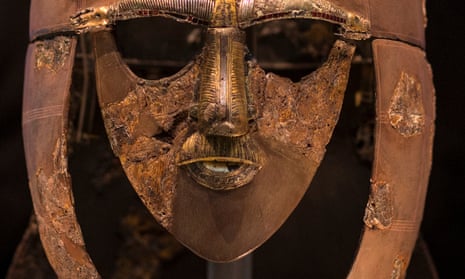XXI
The men went to Catraeth; they were renowned;
Wine and mead from golden cups was their beverage;
The year was to them of exalted solemnity;
Three warriors and three score and three hundred, wearing the golden torques.
Of those who hurried forth after the excess of revelling,
But three escaped by the prowess of the gashing sword,
The two war-dogs of Aeron and Cenon the dauntless,
And myself from the spilling of my blood, the reward of my sacred song.
LXXII
The leader of war with eagerness conducts the battle,
A mighty country loves mighty reapers.
Blood is a heavy return for new mead.
His cheeks are covered with armour all around,
There is a trampling of accoutrements – accoutrements are trampled.
He calls for death and brings desolation.
In the first onset his lances penetrate the targets,
And for light on the course, shrubs blaze on the spears.
Translated by Daniel Silvan Evans
The Gododdin (Y Gododdin) is a gathering of poems forming part of the Llyfr Aneirin, the book of lays attributed to the Welsh bard Aneirin. The written text has been dated to around 1250, when it seems to have been copied by two different hands, producing both Middle and Old Welsh versions. But the poems were composed considerably earlier, probably in the second half of the sixth century.
To set the scene, Gododdin was a region that extended from southern Scotland to north-east England and included a number of Brythonic kingdoms. Y Gododdin refers to the men who had been summoned to Edinburgh by King Mynyddawg Mwynfawr, arriving from various parts of the north, including north Wales, to muster against the Angle tribes occupying Deira (Derwent) in the south. Mynyddawg feasted them royally for a year, as was the custom. In return, they were expected to serve their host’s cause on the battlefield. The Gododdin duly marched to the fortified crossroads of Catraeth (modern Catterick in North Yorkshire) and “charged in the green of the dawn”. They found themselves hopelessly outnumbered: “Only one man in a hundred came back,” Aneirin laments later in the poem.
I have picked two verses, hoping new anglophone readers will be stimulated to tackle the whole translation. It is extremely readable, not a long narrative route march but a mosaic of elegies and eulogies to the fallen. Many of the names are unique to this text, but not all: there’s a brief recollection of the courage of Arthur, for instance, which may constitute the first ever literary mention of King Arthur.
Aneirin himself seems to have feasted and fought alongside the warriors and, although he frequently describes their heroism in stock phrases, similar to kennings, their naming is a powerful device. It suggests both personal grief and formal respect. The bard never merely glorifies battle heroics: he recognises the price in physical and mental suffering, and he doesn’t forget the mourning women, either. There are wonderful flashes of vivid and singular imagery among the stock “golden torques” and “prancing horses”, as in LXXII, where the leader’s “cheeks are covered with armour all around” and “for light on the course, shrubs blaze on the spears”.
The most notable technical device is repetition. Clusters of consecutive verses may begin with the same half-line, and gain power from that simple, emphatic refrain. “The men went to Catraeth,” for example, is repeated at the beginning of seven verses. There are other devices of rhyme and alliteration, impossible for a non-Welsh speaker like myself to penetrate: yet even in the paleness of English translation these echoes surely help account for the emotional impact. Joseph P Clancy offers us a brilliant metaphor when he explains that the form is sometimes termed “radial structure, circling about, repeating and elaborating on the central theme, following the same never-ending patterns of the Celtic icon”.
A question that fascinates me is whether the Gododdin were drunk when they went into battle. Aneirin often emphasises the ill-effects of the mead, and begins to sound like a pious cleric at times, but such references may merely be reminders that the nightly banquet was the means by which the king secured the men’s fatal loyalty, a sound enough reason to castigate the demon drink. Aneirin declares the Gododdin a “well-trained war-band”. Still, a year of heavy feasting can’t have been the ideal military preparation.
The power of Aneirin’s song has been registered by later poets, most famously David Jones in his great first world war poem, In Parenthesis, but also in moving work by Tony Conran and Ric Caddell.
The English translation I’ve used above is by a Welsh scholar born 200 years ago. Daniel Silvan Evans (1818-1903) is remembered by Welsh linguists as the lexicographer who coined the word “telyneg” to translate the word “lyric”.
You may prefer the brisker 20th-century translation by Clancy in Earlier Welsh Poems. Clancy updated the work further in his Medieval Welsh Poems (2003), and the later version, which I’ve yet to read, is warmly recommended on the Mary Jones website.
Aneirin’s poems engrave in time the names of the men who fell at Catraeth. And I think it right that we should record our debt to 19th-century scholarship by remembering increasingly misty names such as Evans. They worked across disciplines and borders, meticulously trying to untangle fact from “the imagined and fictitious”, and their devotion to poetry as well as history has helped deliver the rich, unique mead of Welsh verse to many contemporary tables, across many nations: Iechyd da!

Comments (…)
Sign in or create your Guardian account to join the discussion